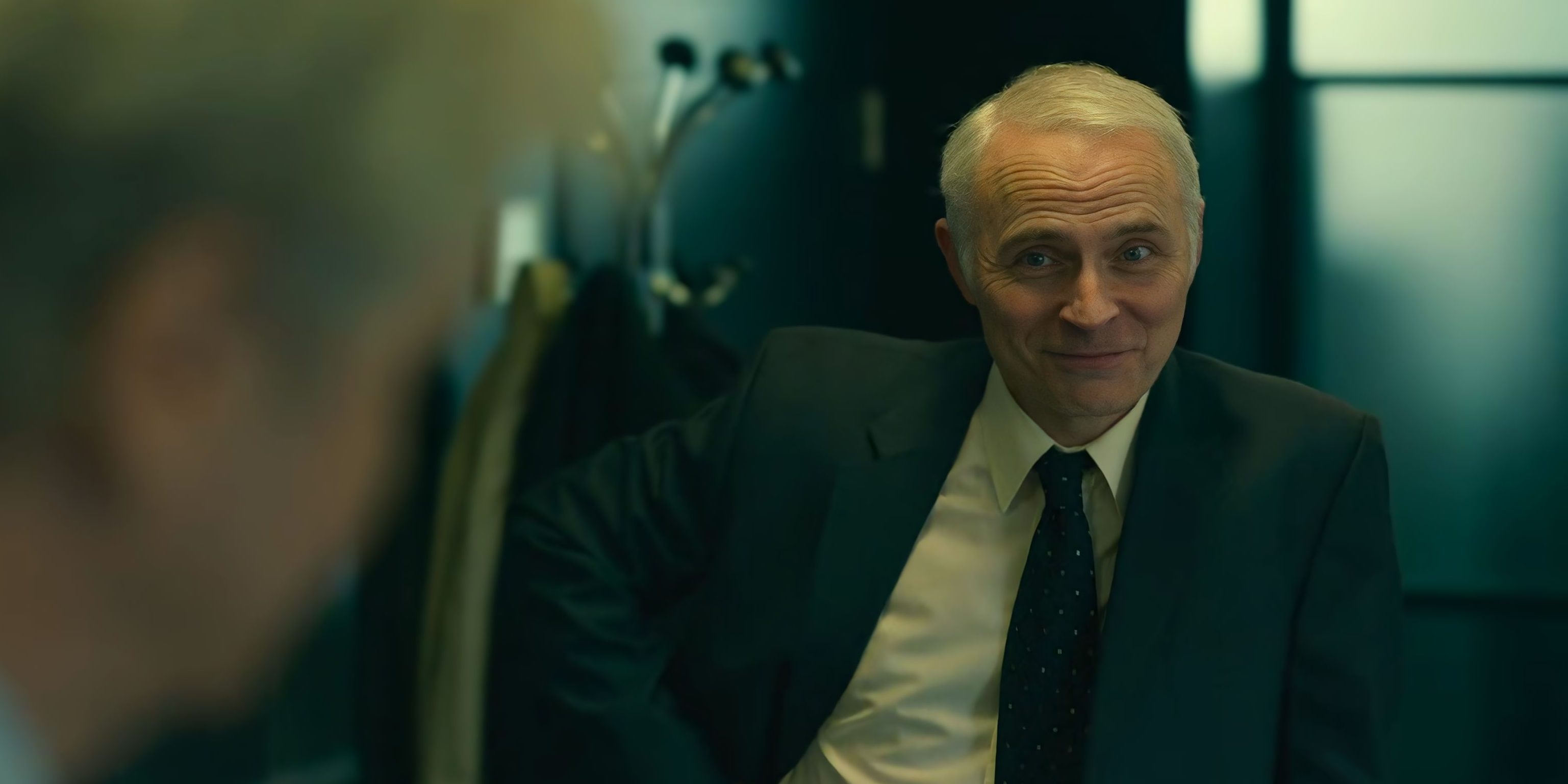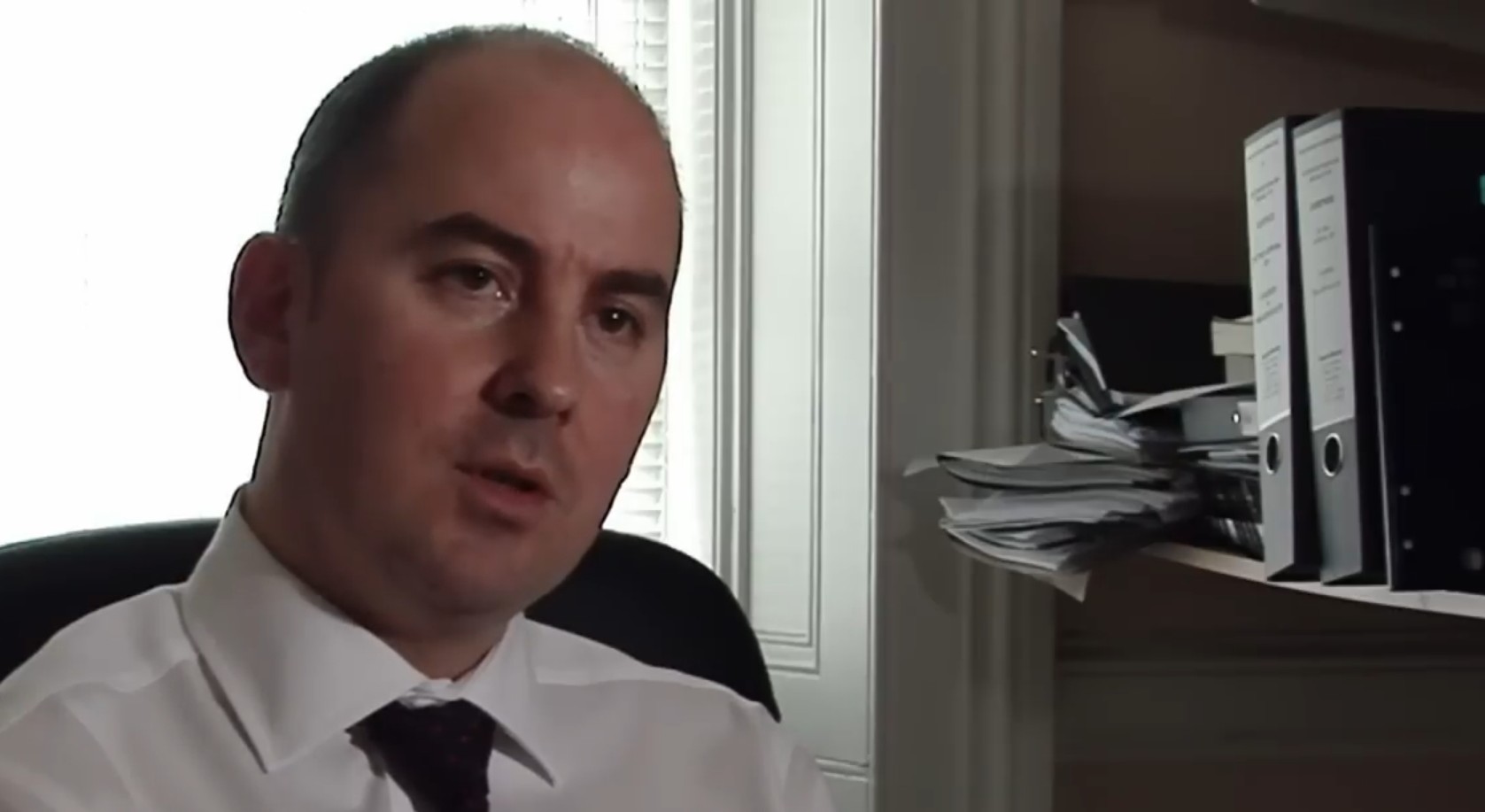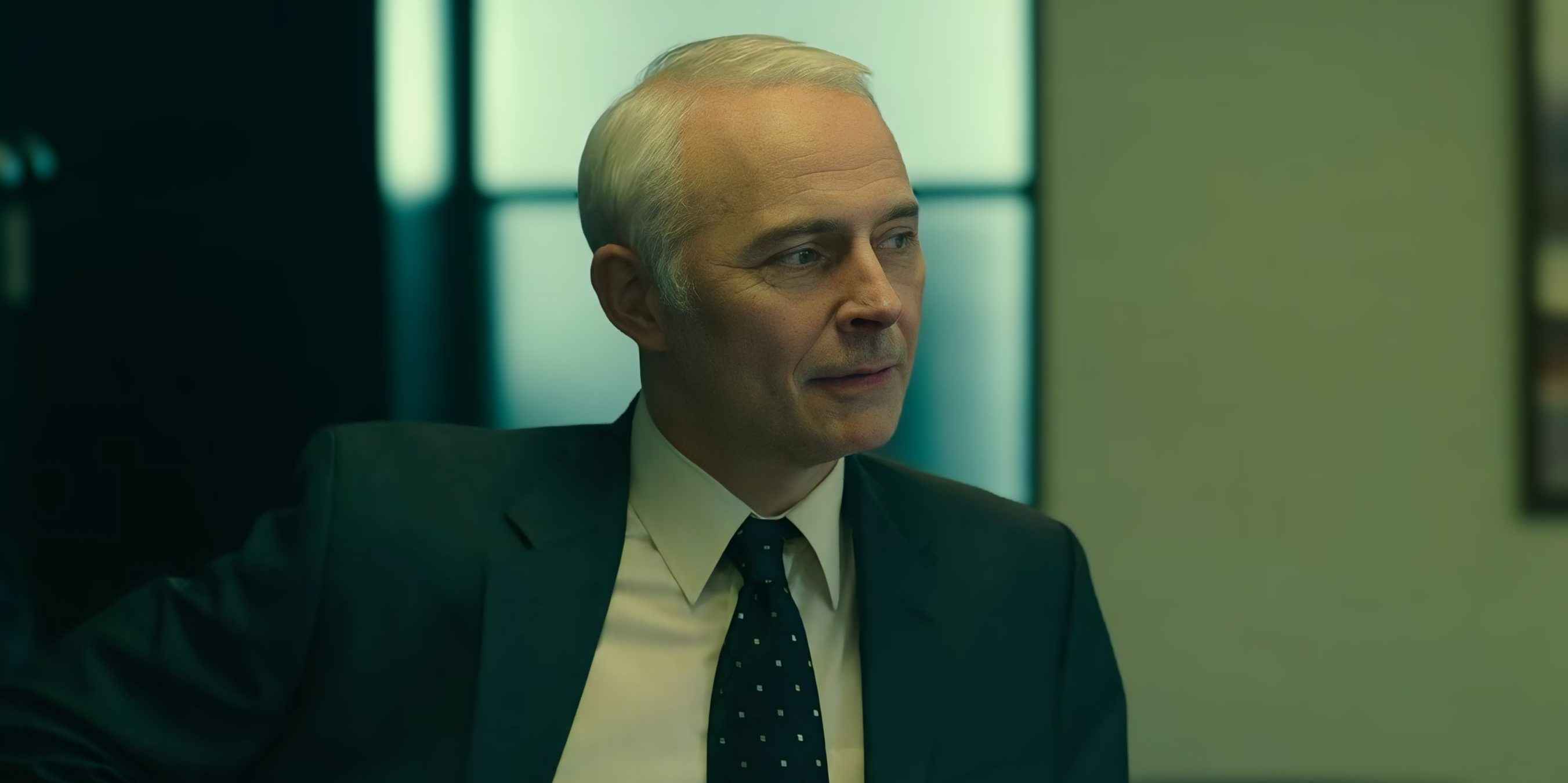Peacock’s biographical drama series ‘Lockerbie: A Search for Truth’ opens a window into the legal proceedings that follow the bombing of Pan Am Flight 103 and its subsequent crash in Lockerbie, Scotland. The authorities capture and try Abdelbaset al-Megrahi and Al Amin Khalifa Fhimah, only for the former to get convicted of 270 counts of murder. Following his conviction, Roderick McGill becomes his new legal representative. The attorney joins hands with Jim Swire, the father of a victim named Flora Swire, to prove Megrahi’s alleged innocence. Along with Jim and his assistants, McGill makes significant progress in the case. However, he cannot be found in reality as the show depicts!
Roderick McGill is Based on the Human Rights Lawyer Tony Kelly
Roderick McGill is a fictionalized version of the Scottish human rights lawyer Tony Kelly. The latter replaced Edward MacKechnie to become Abdelbaset al-Megrahi’s solicitor in 2005. By then, the attorney had made a name for himself among the prisoners in Scotland, specifically after appearing for Robert Napier, an inmate of HM Prison Barlinnie. On behalf of his client, Kelly filed a lawsuit after the former was forced to slop out during his prison term. The court found the same as a “degrading treatment” and awarded damages to Napier. Around a year later, the attorney was approached by over 800 individuals with similar complaints.

By the time Kelly became the solicitor of Megrahi, he had earned the reputation of being a lawyer courageous enough to take on ministers in matters of human rights. Like McGill, the attorney’s focus remained on PT/35(b), a fragment of the circuit board used in the bomb that detonated inside Pan Am Flight 103. According to Jim Swire and Peter Biddulph’s ‘The Lockerbie Bombing: A Father’s Search for Justice,’ the source text of the series, the lawyer found out that the same sort of boards were usually made using a tin/lead alloy, which was not the case with the piece of evidence that was made with only tin.
Kelly and Jim wanted to use this alleged discrepancy to prove Megrahi’s supposed innocence, especially with a second appeal on the horizon. However, the convicted bomber instead chose to drop the appeal to facilitate his repatriation to his home country, Libya, under a prisoner transfer agreement (PTA) in August 2009. At the time, Kelly addressed the press and clarified that the decision was made after Megrahi’s health took a “significant turn for the worse.”
Tony Kelly Polarized the Scottish Political Scene With His Controversial Cases
After Abdelbaset al-Megrahi’s return to Libya in 2009, Tony Kelly turned his attention towards human rights affairs in Scotland and the United Kingdom in general. When the Criminal Procedure (Legal Assistance, Detention, and Appeals) (Scotland) Bill was passed in 2010, reportedly with the intention of decreasing the number of cases that qualified to be appealed, he emerged as a strong critic of the same. He approached the bill as the government’s way of “[pulling] up the drawbridge” on people suffering from miscarriages of justice. During the same period, Kelly was known for assisting some of the high-profile prisoners in Scotland to win compensation payouts.

In the late 2000s and early 2010s, Kelly represented hundreds of inmates who alleged that their human rights were breached during their prison term. His clients included William Beggs, who is infamous as the “Limbs in the Loch Killer,” and Imran “Baldy” Shah, who was convicted of killing the fifteen-year-old Kriss Donald. Between April 2006 and April 2010, Kelly earned a whopping £2 million in legal fees. As per a June 2011 report, the prisoners he represented were awarded £11 million by the government as compensation. While these cases made him a high-profile human rights lawyer in Scotland, he also received criticism because of them.
Alex Salmond, who served as the First Minister of Scotland, accused Kelly of making “an incredibly comfortable living by trailing around the prison cells and other establishments of Scotland trying to find what might be construed as a breach of human rights” in a since-modified interview given to the Scottish political magazine Holyrood in 2011. Kelly responded to the claim with legal action, stating that he focused only on serving the “most maligned in our society.” “[…] for a politician to attack me for the work that I do – and to mistake so seriously my motivation – cannot be left unremarked upon,” he added in a statement in June 2011. In November 2011, the lawyer settled the dispute with Holyrood.
Tony Kelly Serves as a Judge in Scotland Today
Nearly two decades after Tony Kelly signed on to become Abdelbaset al-Megrahi’s solicitor, he continues to practice as a man of law in Scotland. His law firm, Taylor & Kelly, is based in Coatbridge, a town not far away from the Glasgow city center. Over the years, his roles and duties as a law practitioner have increased considerably. In August 2016, he was appointed as the summary sheriff of Glasgow and Strathkelvin. The role was preceded by his tenure as the First-Tier tribunal judge in the Social Entitlement and Immigration and Asylum Chambers. Kelly further marked a significant milestone in his career in September 2024 with his appointment as a temporary judge in the High Court of Justiciary.

Kelly also worked as a visiting professor at the University of Strathclyde, Glasgow, as an expert in human rights law. He continues to serve as a member of the Parole Board for Scotland as well. Considering his nature of work, it is unsurprising that he has chosen to keep his personal life private. However, from a 2007 profile, we know that he has been married with three daughters who used to be chauffeured around by their busy father. Kelly has credited his wife with his success as a human rights lawyer, emphasizing her invaluable encouragement and understanding of his passion.
Read More: Lockerbie: Is Murray Guthrie Based on a Real Journalist?


You must be logged in to post a comment.